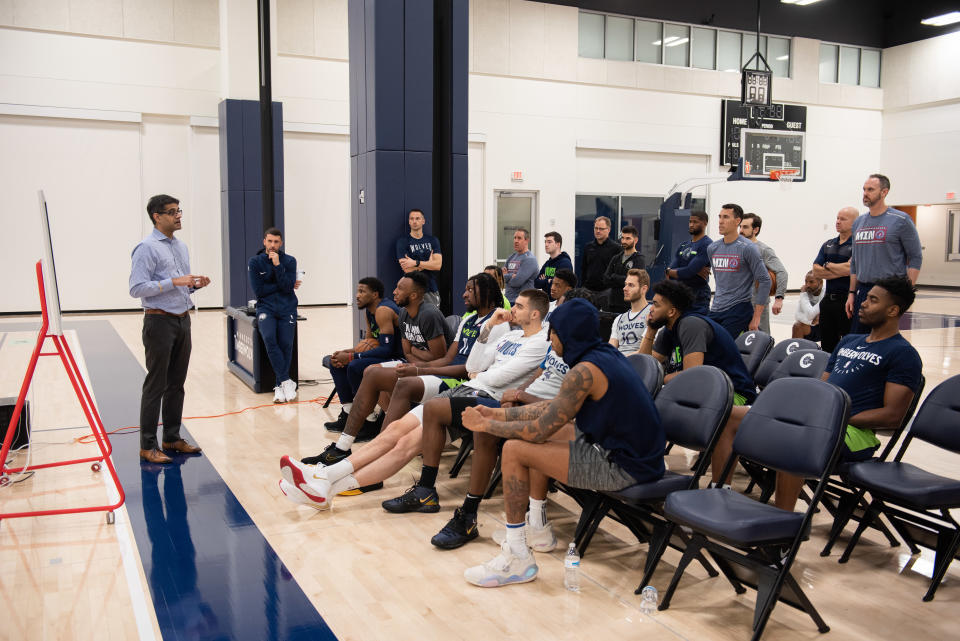If COVID-19 saliva tests are game-changers, did Big Ten and Pac-12 act too soon in canceling fall football?
On Tuesday, the Big Ten and Pac-12 canceled fall sports, including football.
On Saturday, the FDA approved a coronavirus testing system known as SalivaDirect, which was developed by Yale University in conjunction with the NBA and the NBA Players Association.
SalivaDirect is considered a “game changer” in testing because it is cheaper (as low as $4 a test), faster (results can come within a couple of hours and be handled by nearly any lab in the country) and easier (saliva, not nasal swabs) than current tests.
If you need to repeatedly test lots of people (such as a college student body, let alone the football team that comes from it) on a daily basis then this is significant. Potentially very significant.
It can provide accurate, near real-time testing, and the ability to use that information to quickly quarantine anyone infected before they spread the virus. That could limit the infections within a team.
“If you test frequently enough you are going to pick up on the positives early on before there is a spread,” Robby Sikka, a doctor and the vice president of basketball, performance and technology for the Minnesota Timberwolves told Yahoo Sports on Saturday. Sikka played a key role in the study of the testing procedure.

The tests, perhaps 90 percent effective, aren’t perfect. Yet if you test often enough, that margin gets accounted for.
The inability to test quickly and in a cost-effective manner was one of the chief hurdles to attempting to stage a college football season. If that wasn’t possible, then how do you even try it? If one player tests positive, do you have to quarantine everyone and wait for additional tests?
If SalivaDirect is as promised, this doesn’t just solve that issue, it provides a powerful tool in curbing the contact spread within a team.
So the obvious question: Did the Big Ten and Pac-12, among others in college football, jump too soon in canceling the season? Would things have looked differently four days, let alone a few weeks, later? With some seasons not set to start until late September, why the rush?
Like with everything involving this pandemic, it isn’t crystal clear that the wrong, or even a wrongly timed, decision was made. We may find out though.
First know this: myriad reasons went into the decision to cancel the fall season. It wasn’t easy. No one thing tipped the balance, although restrictions on group gatherings in California were paramount for the Pac-12. Worries about long-term heart issues was another.
The Big Ten and Pac-12 essentially decided it wasn’t safe or, due to local governments, possible to even start full padded practices. As such, it pulled the plug. It may have even with SalivaDirect being available.
And while the ACC, Big 12 and SEC have continued to progress toward playing, a final decision has not been made. And even if it starts the season, it may not finish it.
Still, this may prove to be a very big deal, and it may have been prudent to wait for all available technology to present itself, and even become available for use.
One major factor is that SalivaDirect is almost immediately scalable. Nearly any lab in the country, and especially any attached to a university, already has the ability to process the tests right now. It is expected that tests could begin by the start of the school year, or the end of August.
It has sparked cautious optimism.
“It will be most helpful,” SEC commissioner Greg Sankey told Yahoo Sports, although he wasn’t guaranteeing anything. “It’s important news, but I think we have to understand truly what it means and the accuracy and accessibility that we all know are central to a successful testing environment.”
Spoke to SEC Commissioner Greg Sankey today. Mentioned this testing development to him. "It’s important news. But I think we have to understand truly what it means and the accessibility and accuracy that we all know are central to successful testing environments." https://t.co/ns71boAcWm
— Pete Thamel (@PeteThamel) August 15, 2020
The rapid testing has been one of the keys to the success of the NBA’s return to play. Researchers at Yale originally published the saliva concept in April. The paper was read by Sikka, who helped spearhead the NBA and the NBAPA to fund further study.
The original goal was to help schools open, not to get basketball played (the tests are expected to be widely embraced by the NFL and MLB as well). If college football benefits, all the better.
“The reason we did the study was not to help the NBA,” Sikka said. “It was to help open schools and allow society to move forward. Part of the purpose was to create cheap tests for smaller schools or HBCUs that may not have the resources as bigger schools. This is about the student body, not just the running back.”
While the SalivaDirect approval is potential great news, it doesn’t assure there will be a college football season. It is not a vaccine. It is not a cure or an antidote. It’s a test.
It is still possible that college campuses, where social distancing will be a challenge, are so overrun by the virus that fielding a team in some, or most, weeks is impossible.
No one knows.
This, though, is a step forward.
The ACC, Big 12 and SEC will all be armed with the knowledge that this test is available, not to mention perhaps weeks of using it and seeing results, before making a final call on a fall season.
If this plays a big role in a 2020 campaign happening, then the Big Ten and Pac-12 might have to explain again not just why they made the decision to cancel, but why they made it so soon.
More from Yahoo Sports:

